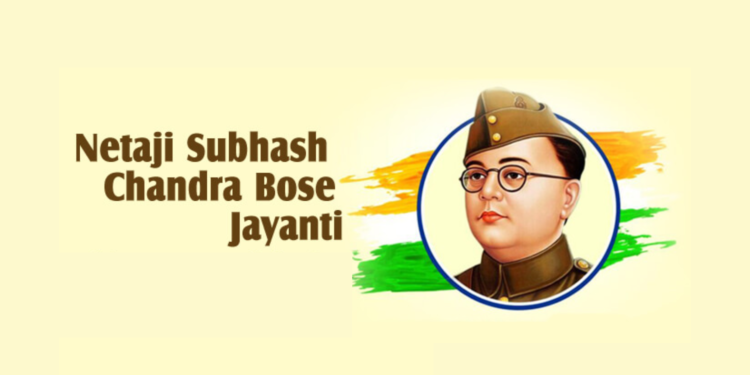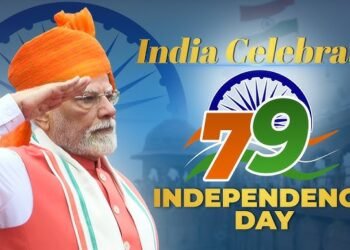Subhas Chandra Bose, fondly known as Netaji, was a dynamic and visionary leader who played a pivotal role in India’s struggle for independence. Born on January 23, 1897, in Cuttack, Odisha, Netaji emerged as a young icon in Indian politics, leaving an indelible mark on the nation’s history. From a young age, Bose displayed a fervent passion for India’s independence, setting the stage for his remarkable journey into politics. His education at Cambridge and the Indian Civil Service only fueled his desire to contribute to the nation’s struggle for freedom. Netaji’s foray into politics began with his involvement in the Indian National Congress, where he quickly gained quick recognition for his charismatic leadership and unwavering commitment. His ability to connect with people on a personal level set him apart, earning him the reputation of the “youngest and the warmest leader” in Indian politics.
In 1922 Bose founded the newspaper Swaraj and assumed charge of the publicity for the Bengal Provincial Congress Committee. His mentor was Chittaranjan Das, a voice for aggressive nationalism in Bengal. In 1923, Bose was elected the President of Indian Youth Congress and also the Secretary of the Bengal State Congress. He became the editor of the newspaper “Forward”, which had been founded by Chittaranjan Das. By 1929 Bose was the face of Bengal’s youth and he even presided over the session of the Bengal Provincial Congress held at Rangpur. At the age of 33 Bose was elected Mayor of Kolkata Municipal Corporation in 1930 after serving as Chief Executive Offiecer of the Corporation under Mayor Chittaranjan Das.
In 1938, Netaji Bose was unanimously elected President of the Haripura session of the Indian National Congress. At the age of 41 Subhash Chandra Bose became the RASHTRAPATI, literally meaning head of state and placed his political ideology, programme and plan of action before his people. An alternative leadership thus appeared on the Indian Political horizon. However, his approach and ideologies often clashed with the dominant leaders of the Congress. In the 1939 session of the Indian Nation Congress held at Tripuri Bose again decided to contest the congress presidential election and he defeated veteran congress leader Pattabhi Sitaramayya, who had the backing of Ganshiji. Bose easily defaeted hisbm rival and retained congress presidentship. Gandhiji openly remarked that the defeat of Sitaramayya was his own. This followed a huge conflict in the Congress leadership and Netaji faced troubles to function and thus resigned. Thereafter recognizing the need for a more assertive and radical approach, Netaji eventually formed the Forward Bloc in 1939, advocating for complete independence and challenging the status quo.
During World War II, Bose saw an opportunity to align with Axis powers against the British. He sought help from Nazi Germany and Imperial Japan to form the Indian National Army (INA), composed of Indian prisoners of war and civilian volunteers. The INA played a crucial role in battles in Southeast Asia, and Bose’s famous rallying cry “Give me blood, and I shall give you freedom!” inspired many to join the cause. Bose’s mysterious disappearance in 1945 remains a subject of intrigue. While the official account suggests a plane crash in Taiwan, conspiracy theories abound, suggesting he might have survived and lived incognito. The uncertainty surrounding his fate has only added to the legend of Netaji Subhas Chandra Bose.
Netaji’s legacy is a complex tapestry of heroism and controversy. While his methods and alliances during the war have been debated, his commitment to India’s freedom is unquestionable. The Indian government officially recognizes his contributions, observing his birth anniversary as “Parakram Diwas” to honor his bravery and leadership.
In conclusion, Netaji Subhas Chandra Bose’s life exemplifies the spirit of sacrifice and determination in the pursuit of freedom. His legacy continues to inspire generations, serving as a reminder of the sacrifices made for India’s independence and the ongoing struggle for justice and equality.
















